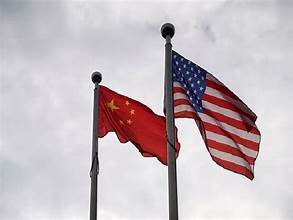Treasury issues rule to block US investors from helping China develop advanced military technology

WASHINGTON (AP) — The U.S. Treasury Department, seeking to keep the Chinese military from gaining an edge in advanced technologies, issued a rule Monday to restrict and monitor American investments in China in artificial intelligence, computer chips and quantum computing.
The finalized rule arises from an executive order issued in August 2023 by President Joe Biden. The order sought to limit the access that “countries of concern” — specifically, China, Hong Kong and Macau — have to American dollars to fund technologies that could be used, for example, to break codes or develop next-generation fighter jets. It will take effect Jan. 2.
“U.S. investments … must not be used to help countries of concern develop their military, intelligence and cyber capabilities”’ said Paul Rosen, assistant Treasury secretary for investment security. He noted the investments can mean more than just money; they can deliver ”intangible benefits,” including managerial help and assistance finding top talent and tapping other sources of financing.
Blocking China’s high-tech ambitions is one of the few issues that enjoys broad support in Washington from both Republicans and Democrats.
Biden in May slapped a stiff tariff on electric vehicles from China. He also has imposed export controls to keep the Chinese from acquiring advanced computer chips and the equipment to produce them. Former President Donald Trump has vowed to dramatically increase taxes on all imports from China if voters send him back to the White House.
The Biden administration sought comment from businesses and from U.S. allies before putting out the final version.
In addition to blocking investments, the rule requires Americans and companies in the United States to notify the U.S. government of transactions that involve “technologies and products that may contribute to a threat to the national security of the United States.”
Violators can be hit with fines of up to $368,136 or twice the value of the prohibited transaction, whichever is greater. Treasury is setting up an Office of Global Transactions to oversee the new rule.
–
AP News



